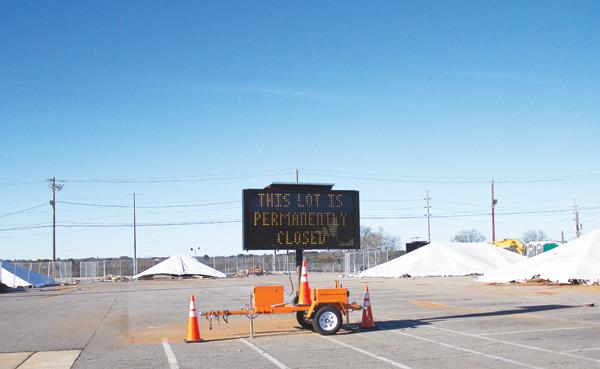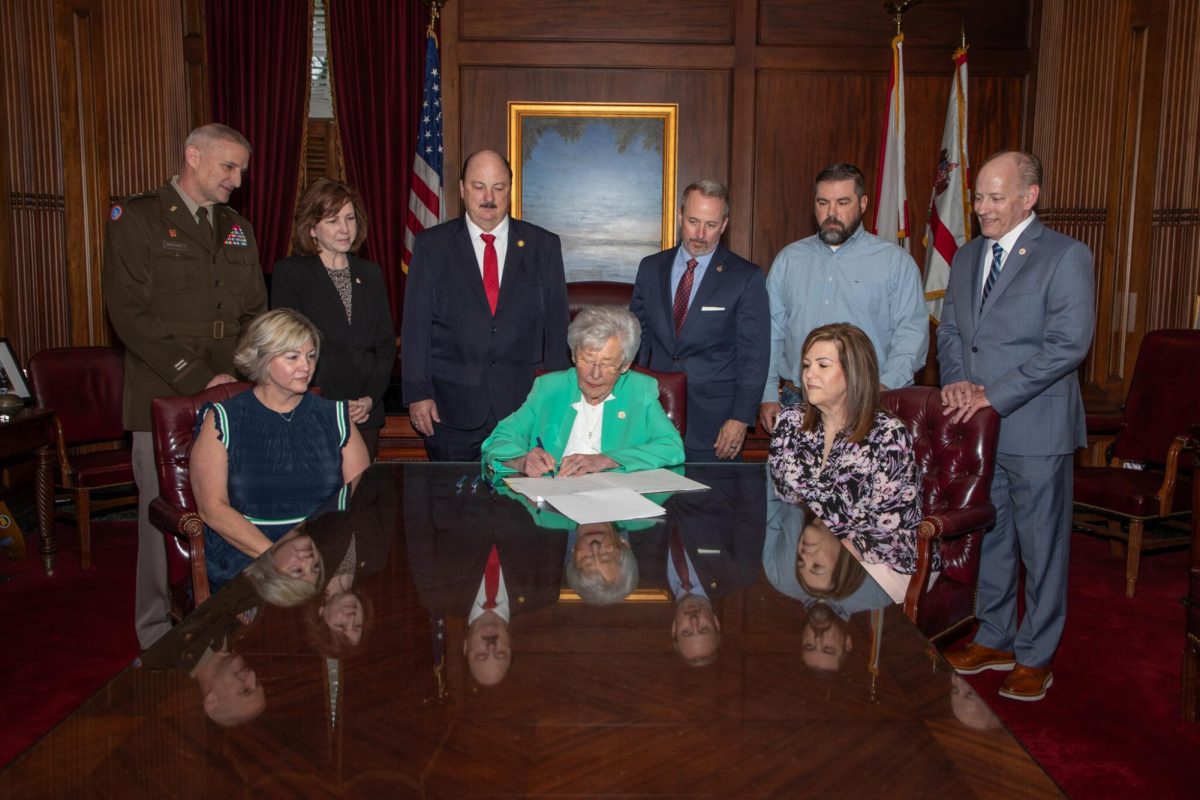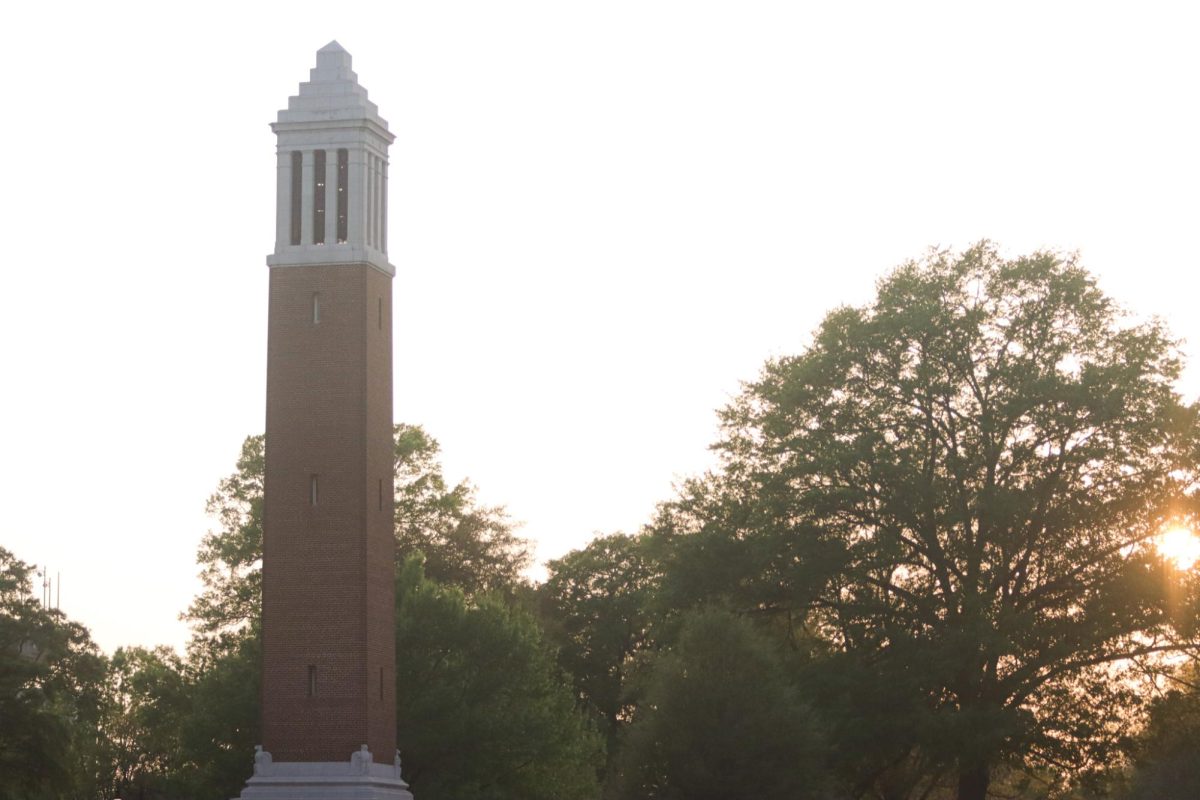 A team from the Office of Archaeological Research for The University of Alabama Museums is conducting an archaeological survey of the future site of the Embassy Suites hotel in downtown Tuscaloosa, which was formerly the home of a Civil War prisoner of war camp, among other things.
A team from the Office of Archaeological Research for The University of Alabama Museums is conducting an archaeological survey of the future site of the Embassy Suites hotel in downtown Tuscaloosa, which was formerly the home of a Civil War prisoner of war camp, among other things.
The Embassy Suites, which will be built on the corner of Greensboro Avenue and University Boulevard, will cost $27 million.
Matthew Gage, director of the Office of Archaeological Research for UA Museums, is overseeing the excavation project. Gage said a team of 25-30 people will work on the full-scale excavation in order to finish the project as quickly as possible.
“We’re working to finish the project as fast as possible,” Gage said. “We know that [Embassy Suites] needs to begin construction pretty soon and we’ve devised our research design to address that so we can get everything out of the ground quickly but maintain the methodical approach that is necessary for the data recovery.”
Gage said he did not know the exact date the excavation project of the completion of.
Deirdre Stalnaker, the director of communications for the city of Tuscaloosa, is working with Gage and the Office of Archaeological Research to provide weekly updates of archaeological discoveries to the public. Stalnaker said the excavation has already turned up several notable artifacts.
“They have been finding some ceramics and bottle fragment, animal bones, floors and structural bases for old buildings that date from the late 19th to early 20th centuries,” Stalnaker said.
(See also, “Students find hearth at Moundville”)
Gage said these discoveries are not a surprise to the team of archaeologists.
“We have late 1800s Sanborn Fire Insurance maps, so we know the locations of the structures from that time period,” Gage said.
The insurance maps, along with a previous excavation project conducted by The University of Alabama, shows that the current parking lot was once the site of first Bank of the State in Tuscaloosa, the Broadway Hotel and the Drisch warehouse, which was turned in to a Union prisoner of war camp during the Civil War.
With such a large amount of history buried under this single lot in Tuscaloosa, Gage hopes Embassy Suites will display and promote the history of Tuscaloosa by incorporating some of it into the hotel.
“What Embassy Suites is trying to do here is take advantage of all the people that want to come in for football, all the people that want to come in and see Tuscaloosa and the University for what it is,” Gage said. “This lot gives them just an absolutely fantastic opportunity to look at the whole history of Tuscaloosa from start to now.”
In terms of the archaeological significance of the site, Gage is excited to study in detail what life in Tuscaloosa has been like through the years.
“You’ve got the mother bank of the state of Alabama here, you’ve got the Civil War facility, you’ve got one of the earliest hotels in town here, you’ve got poor individuals living in close proximity with wealthy individuals. This is an urban environment that is very early for the South,” Gage said. “An opportunity to explore this is great.”
Gage said working with the city has helped expedite the archaeology project and will continue to help as they work to finish the project as quickly as possible.
“Because we’re in such a time crunch to finish this project, it is going to be important that we restrict access [to the site],” Gage said. “We know there are a lot of people that are interested in this project and we’re going to try to keep it so that the city remains informed through our weekly progress reports. We’re going to put up posters around the outside of the property so people can see exactly what we’re doing. Hopefully that will answer people questions and allow us to get our job done as fast as possible.”
Gage said the survey is good opportunity for an uncommon look into the history of Tuscaloosa and the day-to-day life of its past citizens.
“This block is going to be destroyed. They’re going to build a hotel here. They’ve got to excavate the whole damn thing. What we want to do is mitigate the impact of that by collecting the data from it,” Gage said. “If we can get all this information from the data then we can reconstruct the life ways of those people and compare it to other places in town that we’ve excavated, other places in the South that have had similar excavations. It will really help us to understand what these people were going through on a daily basis.”
Leading in today’s Crimson White:
Fashion Inc. provides students opportunities to intern, design









